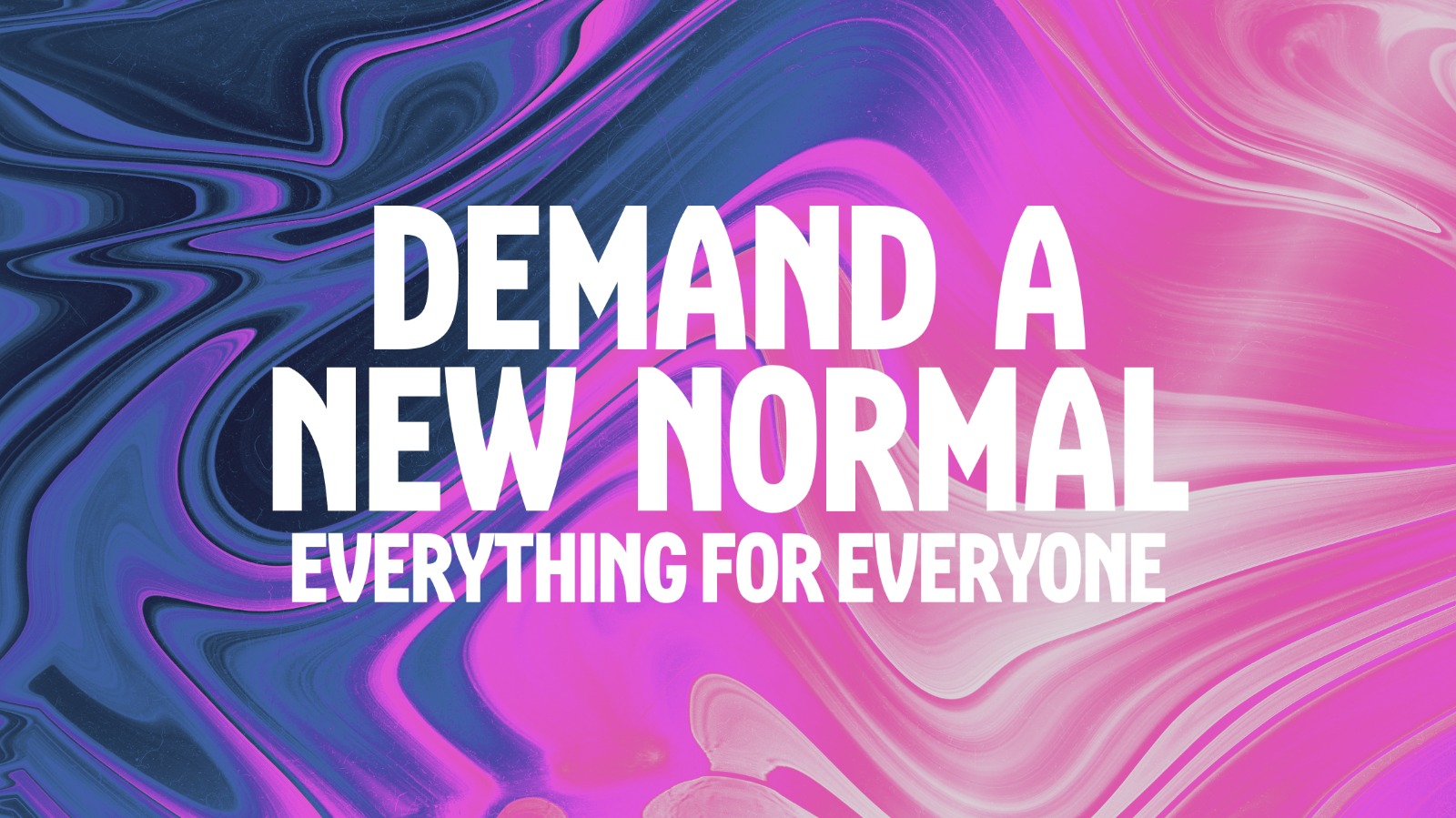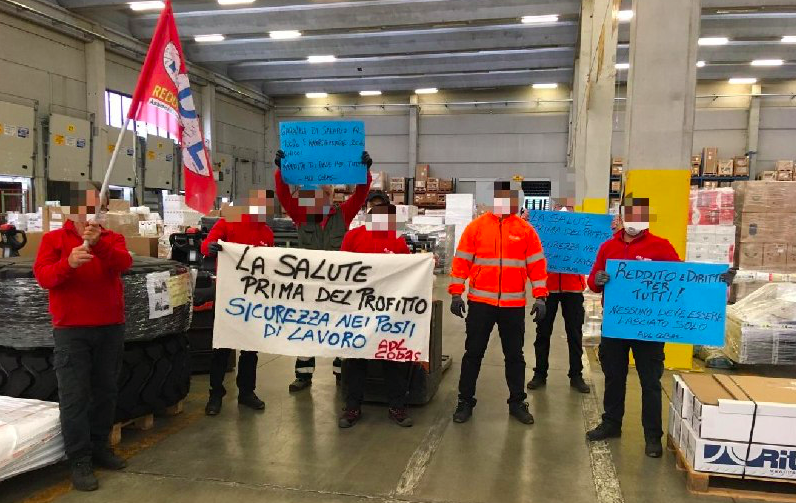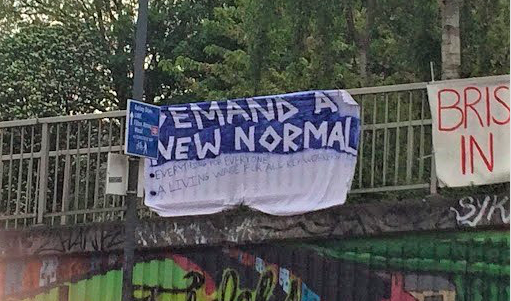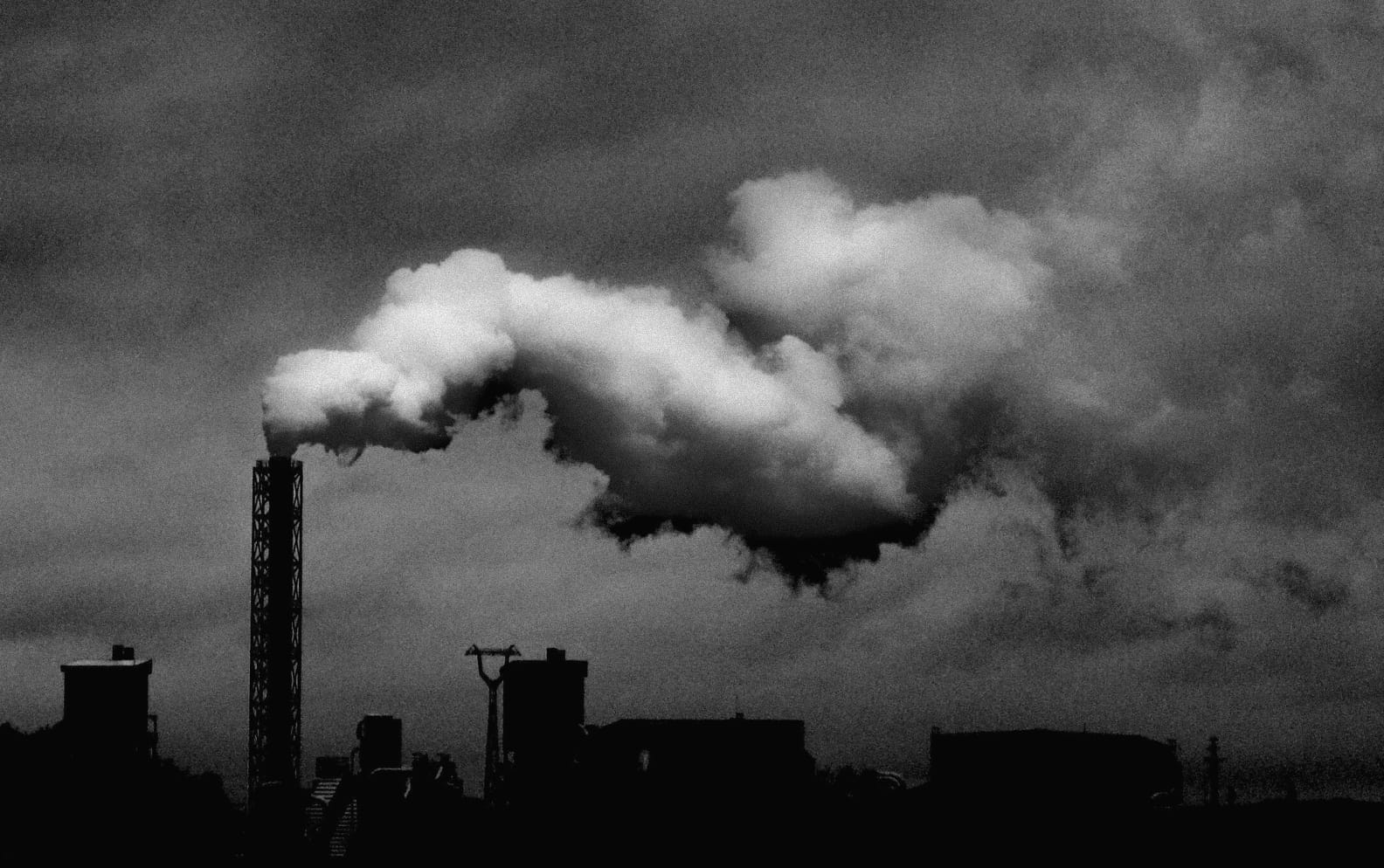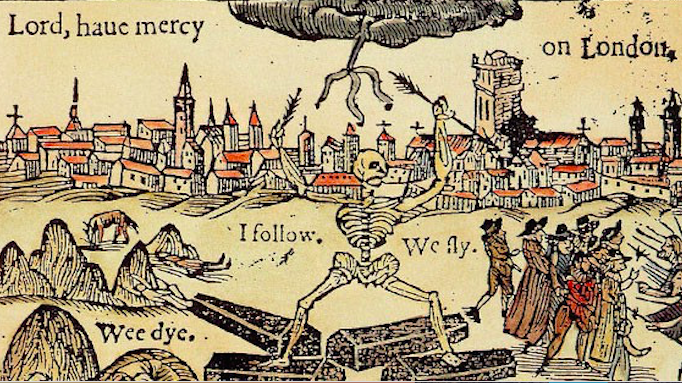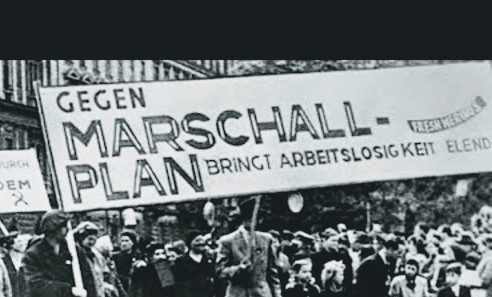By Olly, Plan C Bristol
There’s been a lot of talk and chatter recently about how soon it might take us, meaning England, Britain, the world in general, to ‘get back to normal’. A big, big question though, is what does this mean? Is it about a return to being able to go to the pub? Being able to wander into work without worrying about being infected with coronavirus? Spending time with our friends and loved ones? Going on holiday? Being able to attend a funeral or a wedding? Having sex with someone you don’t know very well without the risk of picking up a killer disease?

All of these things are important to people. Humans are gregarious – we’re social animals so we need each other – we need to spend time with each other in lots of different ways. We need to interact. We need to share ideas, hopes, skills and experiences. We need to learn and develop like this. At times like this, we can also share a very clear understanding that the powers-that-be, our governments and powerful corporations, are more concerned with the flow of capital than with the wellbeing and safety of the people whose labour – waged and unwaged – keeps the cogs of capitalism turning. This is at least partly why there have been so many COVID-19 deaths.
MUTUAL AID
We also have a need to be part of mutual aid. By this we don’t mean one-off charitable acts done by the affluent and privileged for ‘the deserving poor’ – and we know that there’s been a lot of that kind of thing around since COVID-19 ripped through the world. No, we mean the strong human and collective desire to give and take. The inclination to offer what we can – because we have it – to those who need it, with no expectation of payment. No sainthood. No Birthday Honours List. No statues. No enhanced Instagram or Twitter status. And of course the sense and trust that when we’re in need, we can ask for help and we’ll get it too. This isn’t about isolated individuals or solo heroes, it’s about self-organised groups of us looking after each other and therefore ourselves.

Mutual aid doesn’t occur because of a pandemic or a war but because it’s what humans do, naturally. Although quite understandably this trait we have is heightened when some big truths are quite clear: our governments, business leaders and their advisers are happy to consider thousands and thousands of avoidable deaths as collateral damage: if we’re involved in social reproduction rather than the paid work that’s seen as essential to the generation of profit, we are seen as surplus people – although the enormous irony is that, in reality, our structures would fall apart without unwaged social reproduction.
Dominic Cummings, Bumbling Boris’ very special adviser, is reported to have essentially said:
“Herd immunity, protect the economy and if that means some pensioners die, too bad.”
Of course he denied this but the quote speaks volumes.
WTF IS NORMAL?

In many ways mutual aid, community organising, unrest, demonstrations, strikes etc. etc. help to keep our heads above the treacherous waters of capitalism, regardless of COVID-19. Even in recent history, we, our parents, and theirs come to that, have lived lives brutally affected by a capitalist economy and what it does to us: poverty, hunger, seeing whole communities dismantled, war, patriarchy, sexism, homelessness, illness and death… the list goes on and on. These horrors might be ‘normal’ in terms of being usual, typical or expected. But why should they be?
A dictionary definition: Normal Noun: the usual, typical, or expected state or condition.
If we have a look at a few recent examples of what might be considered ‘normal’ by governments and business during the pandemic:
- The Cabinet prioritises Brexit over the COVID-19 pandemic and planning for our health and welfare during January and February.
- Despite government spokespeople’s lies, adequate personal protective equipment (PPE) has not been secured for NHS and keyworker staff. British companies have started selling the PPE they’ve produced to other European countries because government has ignored their offers to supply.
- Boris Johnson spends some of April in intensive care, having contracted COVID-19, quite possibly due to his failure to adhere to physical distancing. He survives and sends messages about how wonderful our NHS is. Wonderful, yes but a service he was more than happy to consider selling off to American big business in the run-up to December’s General Election.
- Massive calls for COVID-19 testing have been met with confused and confusing answers. As late as April 22nd, a frontline keyworker was offered testing 250 miles away from her home!
- The scramble to keep making profit means that businesses that are operating are likely to make a killing (forgive the pun) from the pandemic.
- Deliveroo tells us that its low-paid delivery riders are essential workers.
- Jeff Bezos, owner and CEO of Amazon, also the richest man in the world, making around $600,000 per day off the backs of low-paid unprotected workers, is likely to be even richer as people use Amazon for shopping they can’t do on the high street.
- Michael Flaherty, the owner of Ryanair, states that he’ll keep planes on the ground if he’s told that, to fly them, middle seats have to be left empty and unpaid for, to ensure physical distancing.
- NHS staff… for years at war with government over adequate funding versus crazy targets. Now they’re saints! Their needs haven’t changed – they just stand a great chance of getting ill and dying as they care for people with COVID-19.
- A lot of low-paid workers, some of them in precarious work, were often invisible and ignored. They’re now being hailed as heroes: care workers, posties, supermarket staff, delivery workers. Nothing wrong with that but if they are heroes now, they were heroes before.
- Meanwhile people are dying. The government announced on 21st April that 17,337 had died BUT these are deaths in hospital of people who tested positive for COVID-19. Chillingly, the Office for National Statistics has produced data suggesting that the actual number is more like 41,000. So much for government statements that Britain was robust and well-prepared for the virus!
All the facts above – including the blatant hypocrisies – are ‘normal’, in the sense that they are typical and to be expected. But this isn’t the ‘normal’ that people want to get back to, is it? OK, there will be a minority (government and big business for example) desperate to return to the power and profit that motivated them before and during the pandemic; but for us, the world’s majority, we are hardly likely to welcome a return to being exploited, abused and in a fairly constant state of hyper-vigilance about enough money, enough food and keeping roofs over our heads. So if this is normal, the time is more than ripe for us to rise up to make and demand changes.
Plan C has already talked and written about demands, related to the pandemic, but further-reaching. To summarise some of these:
- A basic income for all, including carers.
- More help for people with mental ill health.
- Housing for anyone without a safe home.
- Men to take on responsibilities for care and housework.
- Value the lives of disabled, older, vulnerable and economically poor people – they provide a richness of knowledge, skills and perspectives to the texture of our world.
- Financially support people who work and/or study and care for children, older and unwell friends and relatives.
- Talk about saintliness and self-sacrifice isn’t enough – we need to recognise how much unwaged work this country depends on – and how much more vital that work is in time of crisis.
These demands and many more point to a better world – a fairer one where the right things are the normal things. It’s time to demand a new normal!
We’ll be working on this area in the days and weeks to come. Follow us:
#DemandANewNormal



